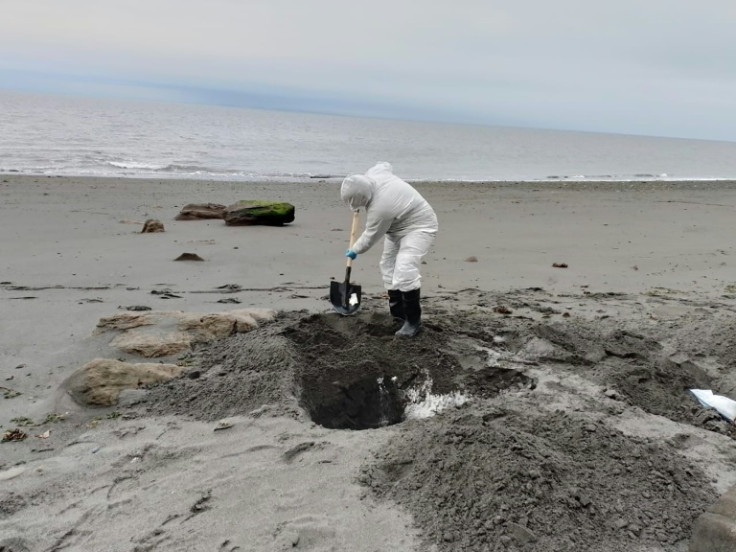Travel warning in UK as contagious disease strikes popular beach
A fresh wave of bird flu has killed over 300 birds in Scotland

There is a travel warning for people in the UK heading to the coast after hundreds of seabirds have died at a popular beach.
A fresh wave of bird flu has killed over 300 birds as the infectious disease continues to wreak havoc at Stonehaven Beach and Cruden Bay in Aberdeen, Scotland. This comes just days after the avian flu was found at a farm in north-east Scotland.
Government wildlife agency NatureScot found around 200 sandwich terns and black-headed gulls dead at Forvie National Nature Reserve in Collieston, around halfway between Aberdeen and Peterhead. The bodies of the birds will be tested to confirm if the cause was avian flu.
In recent months, there have been several cases of mass bird deaths across the north-east of Scotland, but the deaths in Aberdeenshire are among the worst and most shocking, Aberdeen Live reported. The Scottish Society for Prevention of Cruelty to Animals was also forced to humanely destroy a number of live birds suspected of having the contagious bird flu.
Warning for beachgoers
Stonehaven Beach is 1km in length and has a sandy stretch towards the south, making it ideal for sunbathers. It is a popular spot in Scotland, especially among watersports enthusiasts. Beachgoers have been asked to stay away from the dead birds, as coming into direct contact with them can raise the risk of possible infections.
Even though the risk of catching avian flu was "extremely low", as per the Aberdeenshire council, it has been advised to tourists and locals to leave the birds in-situ due to other diseases such as salmonella that wild birds can carry, according to The Independent.
Some varieties of bird flu can pass to humans but this is very rare. It typically requires very close contact between humans and infected birds. In February 2021, H5N8 - the most recent avian flu of concern - was found to have infected a small number of people for the first time, in Russia.
"Our teams have been closely monitoring the number of deaths in the bird population over recent days across the region," An Aberdeenshire Council spokesperson said.
"The council has finite resources, but we will look to remove large concentrations of birds from popular areas of highest footfall. People should be aware, however, that there will inevitably be more birds washed ashore with each tide so beaches may not be cleared entirely," the spokesperson added.
The council has also urged people to "keep pets and children away from any dead or sick birds and don't touch wild bird feathers or surfaces contaminated with droppings."
@Aberdeenshire says it will look to remove large concentrations of dead birds from busy seaside locations. Dead seabirds have been reported on Stonehaven beach. It is not clear when the removal will happen. The public are being reminded to not touch them and keep pets away. pic.twitter.com/zIApI3YqYF
— Robbie Boyle (@robbie_boyle) July 9, 2023
Residents should be alert
Residents have also been requested to be alert and they must report where there are more than 10 dead birds in an area via the council's online form on its website.
Meanwhile, the New Arc wildlife rescue charity in Ellon, Aberdeenshire, is no longer taking in sick seabirds due to the risk of avian flu spreading.
Earlier this year in May, bird flu was detected in two poultry workers in the UK, although there were no signs of human-to-human transmission, the UK Health Security Agency (UKSA) said.
The cases were understood to be linked to exposure to sick birds on a single poultry farm where the two people were known to have recently worked. Both the workers did not show symptoms of infection and both cases were found during screening.
Last year, the spread of bird flu forced one of England's most important seabird colonies to close to visitors. The Farne Islands off the Northumberland coast – home to around 200,000 birds – were affected by a lethal outbreak of avian influenza that had spread from the UK's domestic population.
© Copyright IBTimes 2025. All rights reserved.






















